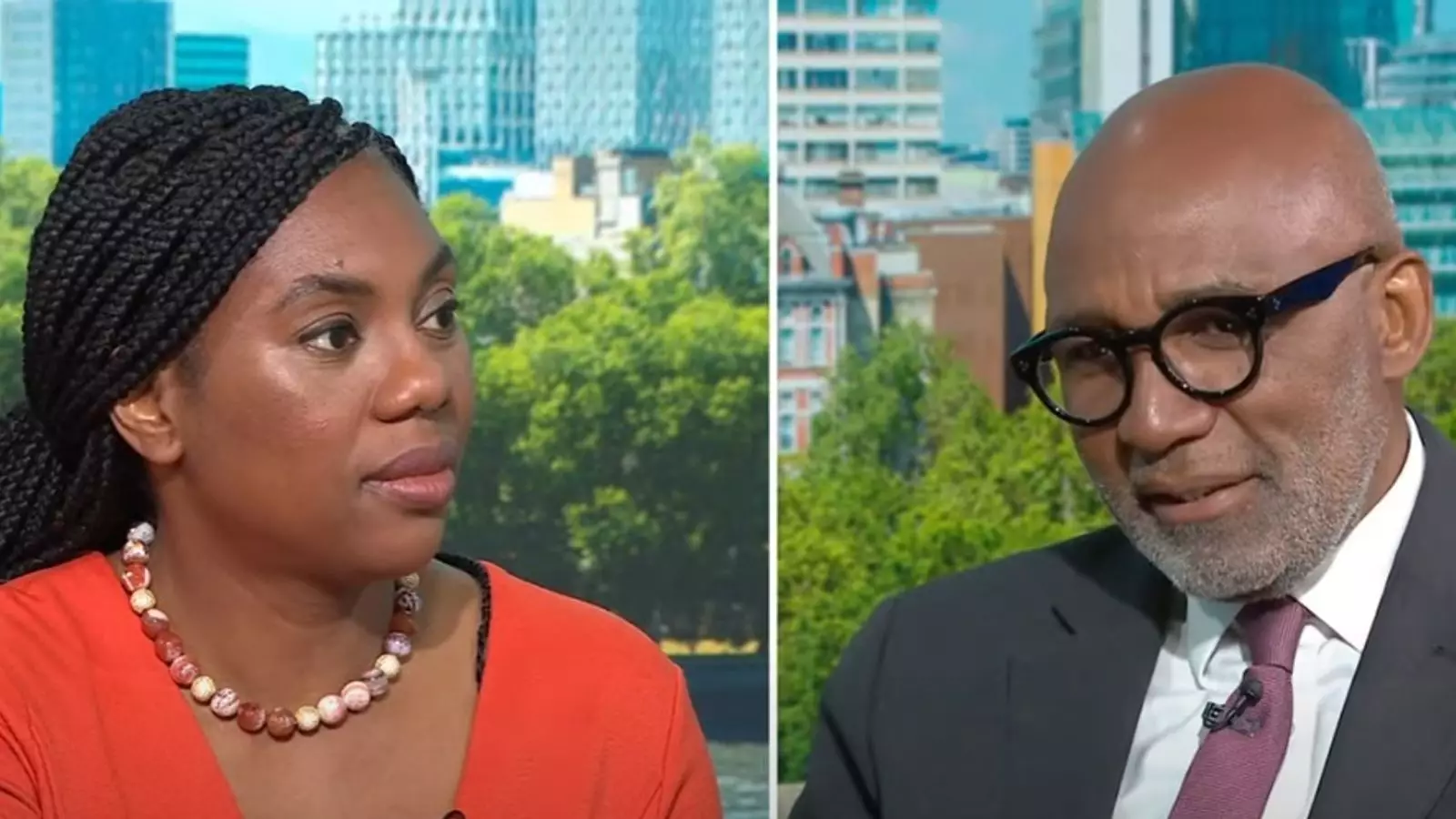In what seems to be a peculiar dance of political maneuvering, Kemi Badenoch, the leader of the Conservative Party, has left open the possibility of forming coalitions with Reform UK at the local level after the upcoming council elections. While she categorically disqualified any deals with Nigel Farage’s party at the national level, the contradiction inherent in her stance raises serious questions about her commitment to political integrity. Badenoch’s remarks on “doing what is right for local areas” seem, at best, questionable. By entertaining the idea of local pacts with Reform while dismissing cooperation on national issues, she risks projecting the very image of opportunism she claims to reject.
The term “stitch-up” that Badenoch used to describe pre-election negotiations creates an ironic contradiction. If she condemns deal-making before election results are available, shouldn’t she also consider the integrity of local governance being compromised through coalitions? It feels disingenuous to dismiss pre-planning at a higher level while simultaneously opening the door to it at the grassroots level. The pitfall of such an approach lies not just in the image of opportunism; it risks alienating traditional supporters who expect a principled stance from their leaders.
Acknowledging Electoral Reality
Badenoch has set the stage for potential losses ahead of the elections, particularly in regions where the Conservatives have historically dominated. The campaign leading up to this election has been marred by a palpable sense of resignation as she suggests they could lose control over the very councils they once commanded. This brutal self-assessment signals not only a diminishing confidence in electoral support but also a concerning trend towards reactivity rather than proactive leadership.
Saying that they could lose all contested councils is not merely setting low expectations; it appears to be an admission that the party’s ability to resonate with its erstwhile base has significantly eroded. Instead of offering a clear vision for revitalization, she is merely bracing for impact, which feels somewhat defeatist. The Conservative Party needs not just a leader but a visionary who can articulate a compelling rationale for voters to back their candidates over Reform.
The Bargain of Convenience
Talk of coalition-building has sparked speculation among party insiders. Tensions are palpable as senior Tory figures hint at possible agreements with Reform, potentially diluting the essence of Conservative identity. Conversations around a “coalition” or any form of alliance with a party that operates under the banner of right-wing populism might strike a chord of unease for many moderate Conservatives. Is a coalition with Reform worth the cost of diluting long-held principles and risking the party’s integrity in the eyes of the electorate?
While Badenoch emphasizes an ethical approach focused on community needs, one must question whether such pragmatism can be justified when it comes at the expense of fundamental Conservative values. An alliance that appears to seek expediency rather than ideological synergy can backfire spectacularly, inviting criticism from all sides. Voters, particularly those on the center-right who align with traditional Conservative principles, ought to reflect on whether such tactics genuinely honor their beliefs or if they undermine the fundamental tenets of the party they once supported.
The Illusion of Unity
Calls for a merger or collaboration with Reform raise another critical issue: defining what it means to be a center-right party in today’s political landscape. Tees Valley Mayor Ben Houchen’s remarks illustrate the ongoing confusion as he suggests various forms of collaboration, but provides no clear blueprint for what that might look like. This ambiguity leaves room for speculation and confusion, painting a picture of a divided and directionless party.
What the Conservative Party desperately needs is cohesion—not just among its ranks, but also in its message. Eager attempts to unite with a party that embodies a more extreme ideology can muddle the distinct identity that Conservative voters once cherished. If the internal dialogue continues to spiral towards ideological ambiguity, it endangers the fabric of what the Conservative identity represents. The fear of losing a second term to a Labour-led government has propelled discussions of alliances, but sacrificing long-term ideals for short-term political survival is a dangerous gamble.
The forthcoming council elections are poised to act as a litmus test for the Conservative Party’s survival strategy, and Badenoch’s hesitation to wholeheartedly reject any association with Reform may lead to unforeseen consequences. The long-term viability of her party’s identity hinges not just on navigating these local elections but importantly on maintaining a clear, principled platform from which they can genuinely appeal to the electorate. The stakes couldn’t be higher, as the repercussions of these choices may echo through the political landscape for years to come.


Leave a Reply